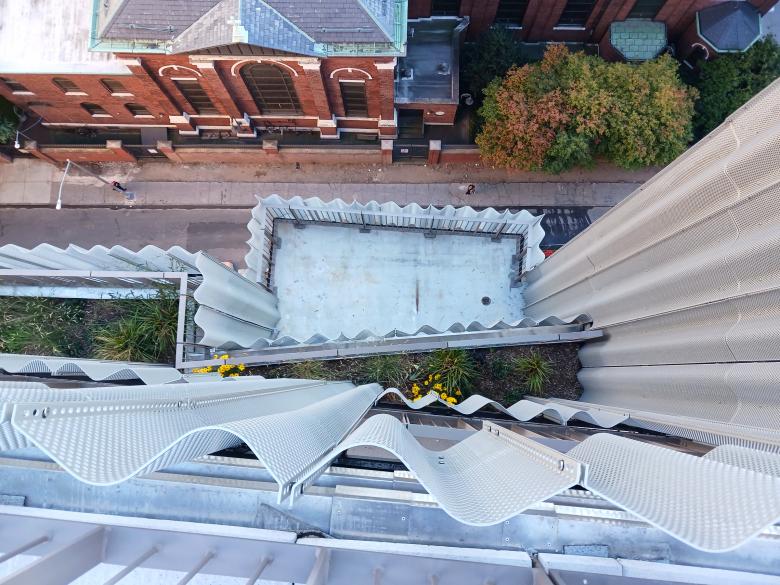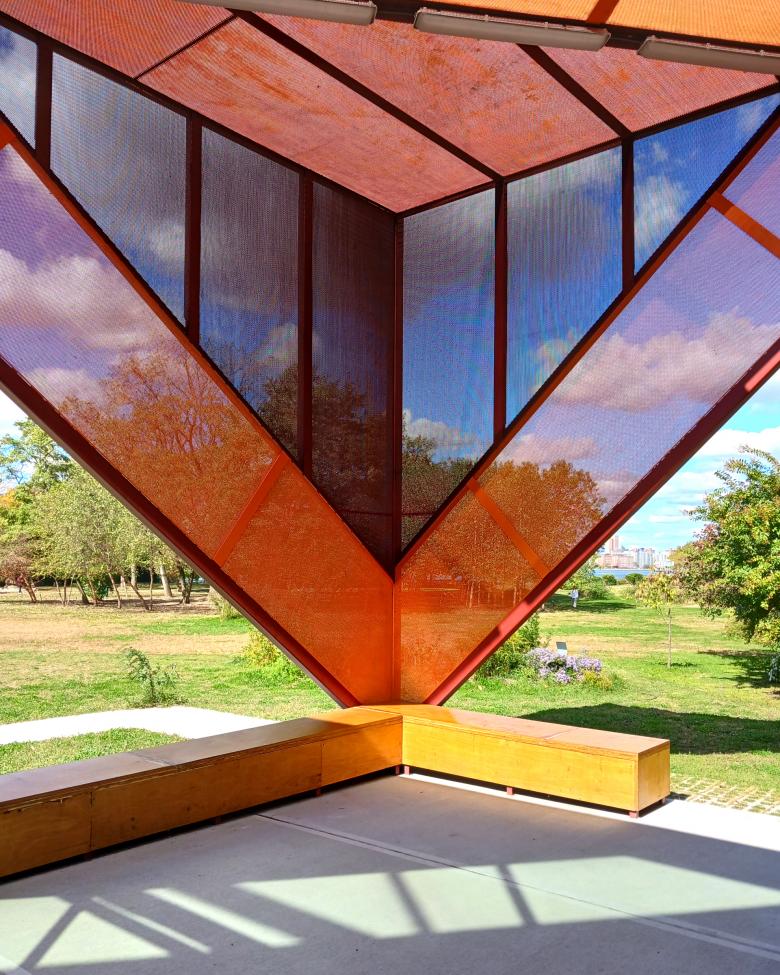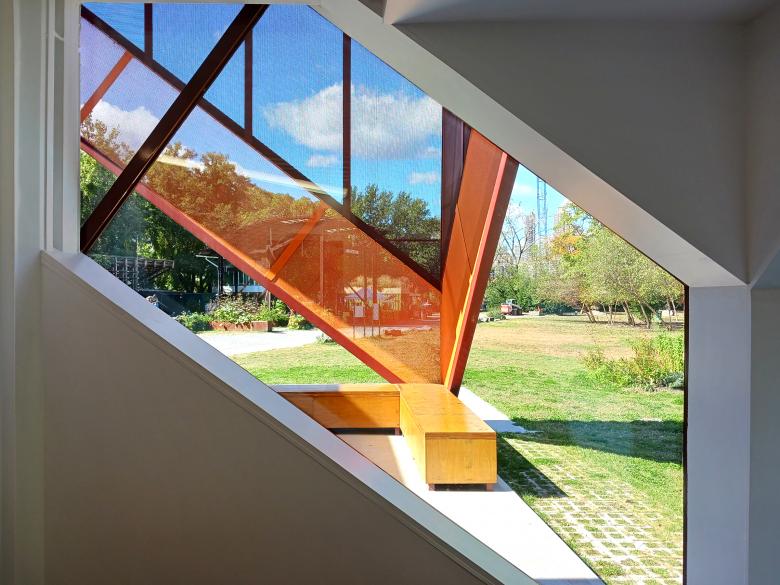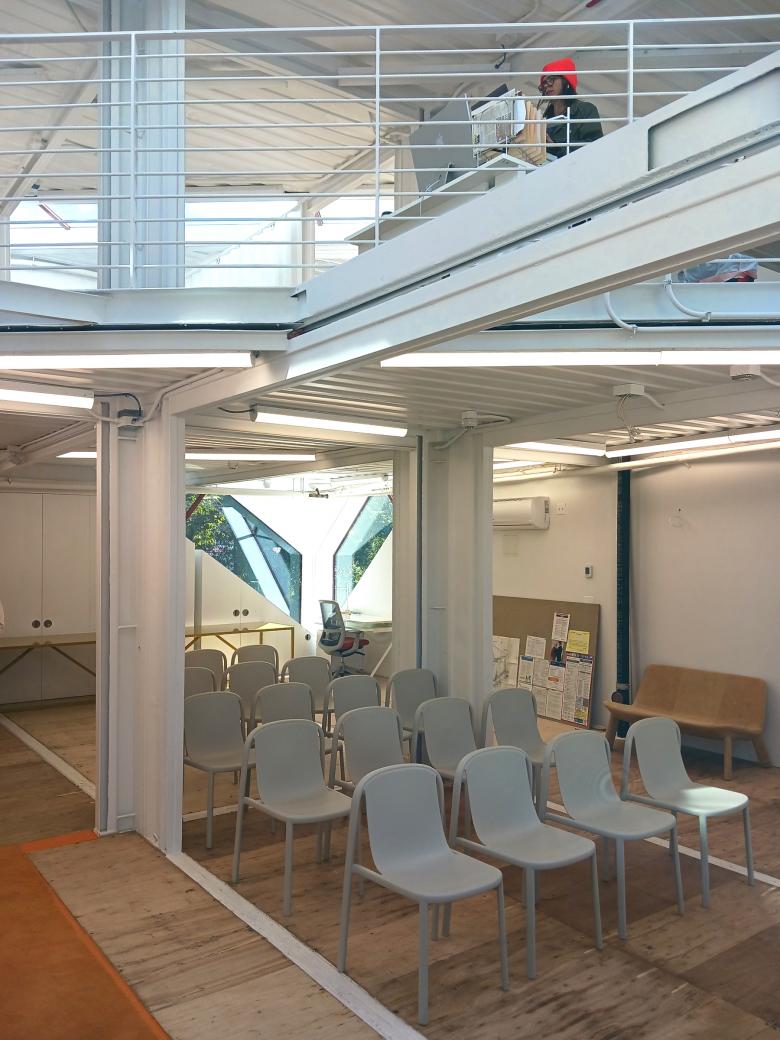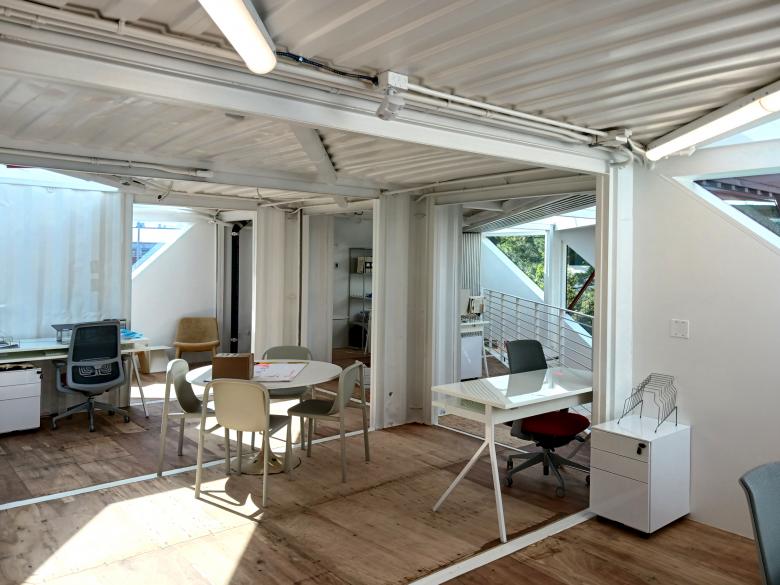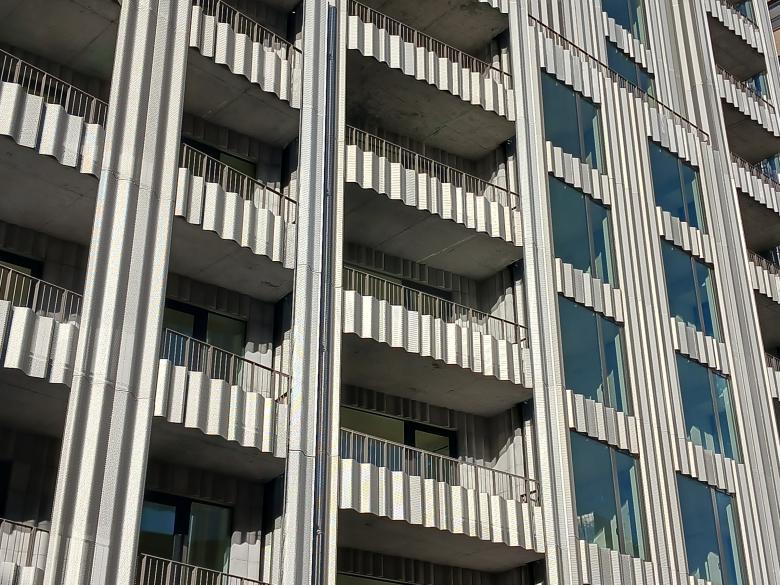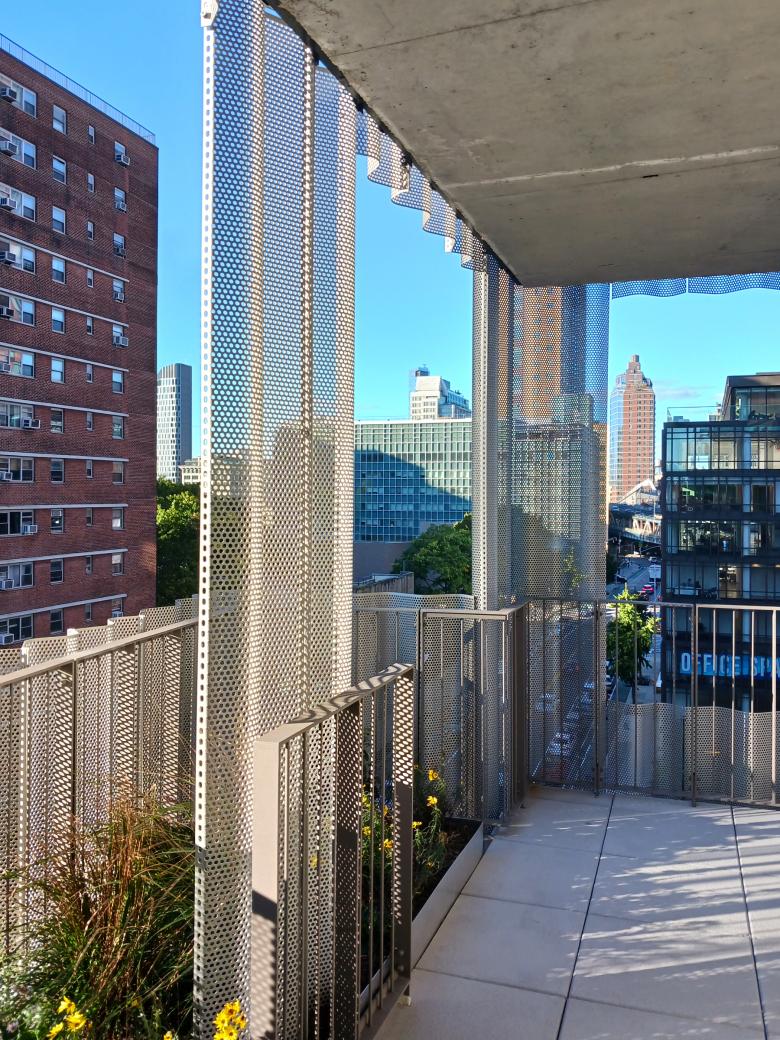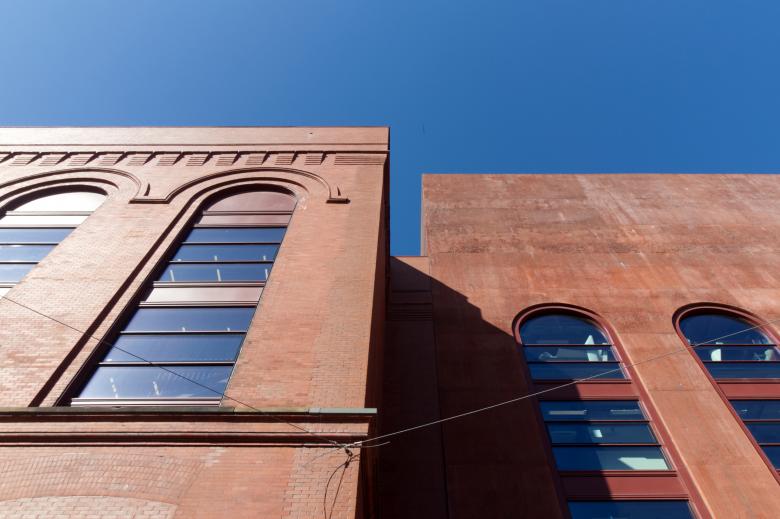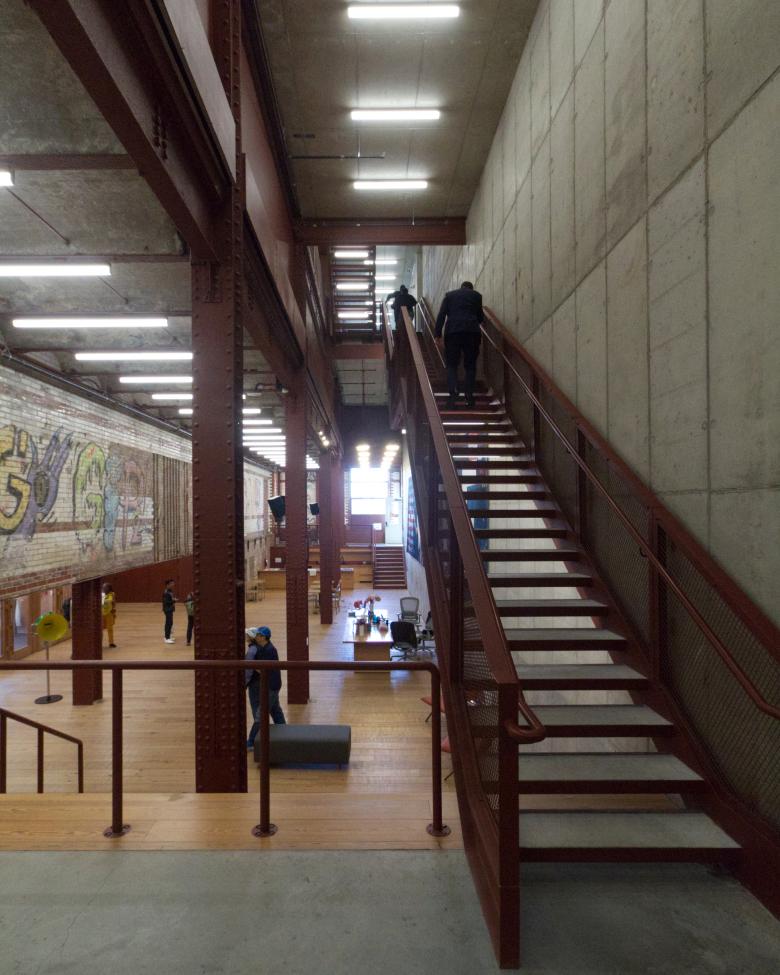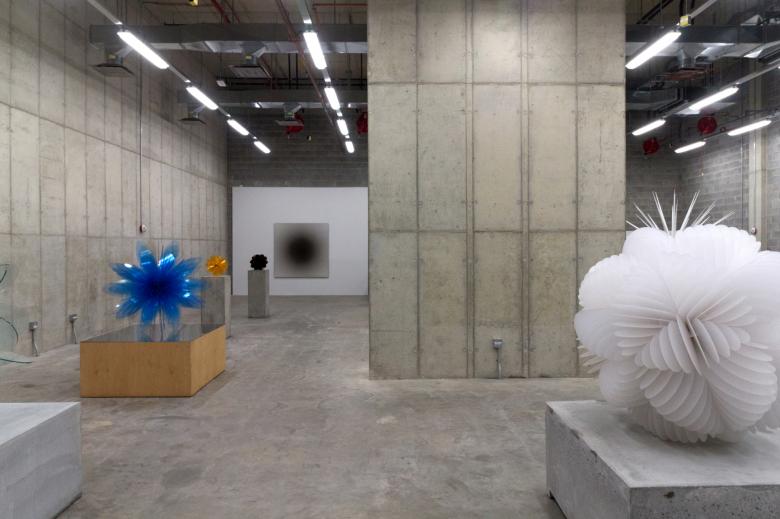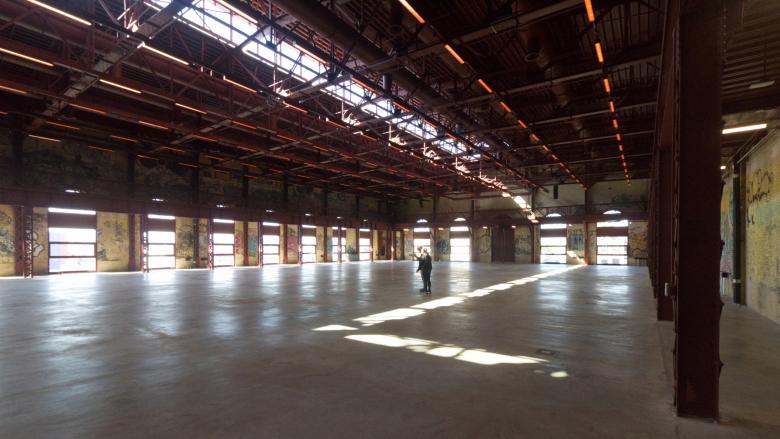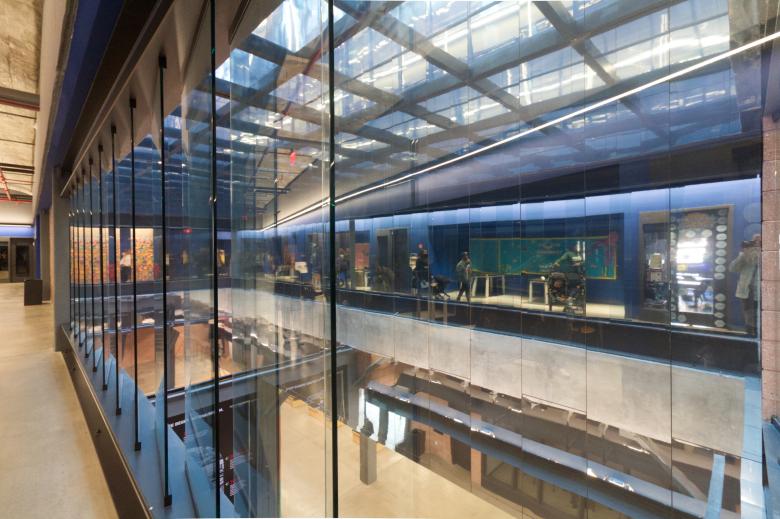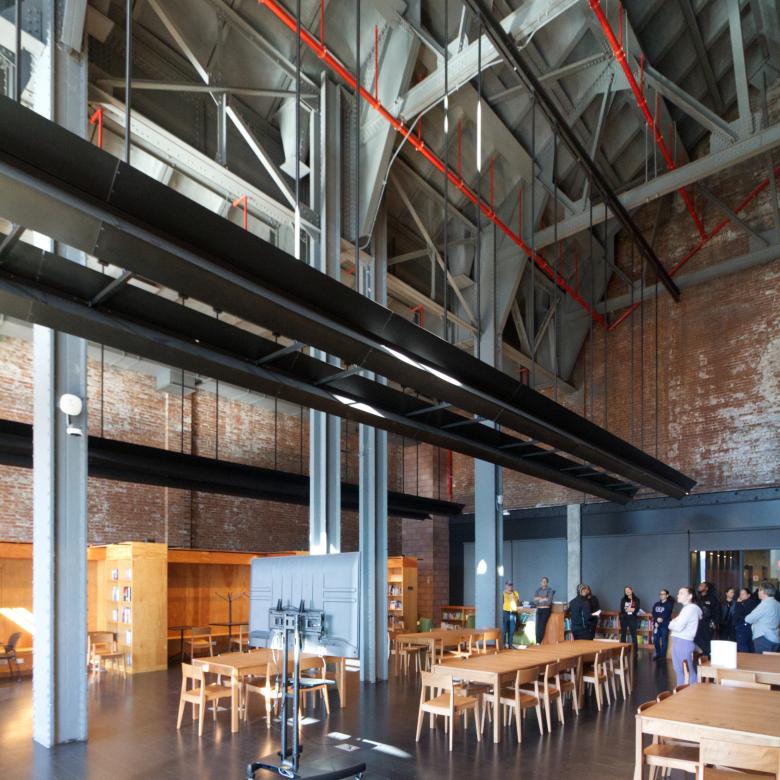9 Chapel St by SO–IL (All photographs by John Hill/World-Architects)
October is a busy month in New York City, with exhibitions opening, numerous lectures and book launches taking place, and otherwise inaccessible buildings opening to the public for the Archtober Buildings of the Day and Open House New York Weekend. World-Architects visited two Archtober buildings (The Cubes, 9 Chapel St) and two OHNY sites (Powerhouse Arts, DREAM Charter School) and here provides some photo highlights from our tours of them.
The Cubes @ Socrates
Designed by LOT-EK, the studio of Ada Tolla and Giuseppe Lignano, The Cubes is a new office and educational building at Socrates Sculpture Park in Long Island City, Queens, that was made from eighteen shipping containers.
The building reuses LOT-EK's Whitney Art Studio from 2012 and adds three additional cubes — two of them also enclosed and one of them a shaded open-air space.
The Whitney project had diagonal windows cut into the containers, so The Cubes has the same throughout, as seen in this view from the office's kitchen to the outdoor space.
While the offices are upstairs, the main space downstairs is an space for educational and public events, something the arts institution previously lacked.
The large framed openings between containers allow for an open office space upstairs, with natural light entering through the diagonal windows as well as diagonal skylights.
9 Chapel St
9 Chapel Street is one of four residential projects designed by SO–IL, the firm of Jing Liu and Florian Idenburg, for Tankhouse, the Brooklyn development company founded by Sam Alison-Mayne (son of Thom Mayne) and Sebastian Mendez.
Nearing completion in Downtown Brooklyn, the 14-story condo building is covered in corrugated perforated aluminum and has generous terraces for each of the 27 units.
The building is across the street from St. James Cathedral Basilica, an early-20th-century Catholic church with a copper-clad steeple visible from most of the units.
Instead of front doors accessed via typical double-loaded corridors, residents enter their apartments via open “front stoops” that are open to the elements on the north side of the building.
Views from the many terraces and loggias are framed by extensions of the perforated aluminum panels; the panels are corrugated so they span floor to floor without the need for additional supports.
The corrugated aluminum is matched by custom concrete blocks with convex surfaces, visible here at the roof.
Powerhouse Arts
Switzerland's Herzog & de Meuron worked with New York's Platt Byard Dovell White Architects to transform a 115-year-old power plant (left) and add a new volume (right) for Powerhouse Arts, a nonprofit that provides production facilities and venues for artists.
Located in the Gowanus section of Brooklyn, the project preserves building elements and graffiti from the original alongside new elements, including a large concrete shear wall and stairs at the lobby.
The stairs lead to studios on the second floor and the grand hall on the third floor.
During OHNY the studios displayed artworks created by the artists using the Powerhouse Arts facilities.
The grand hall, which can accommodate up to 1,200 people for concerts, art exhibitions, and other events, is the main public space in the building and the culmination of vertical movement within the building.
DREAM Charter School
The Mott Haven, Bronx location of DREAM Charter Schools fits three schools (elementary school, middle school, high school) in a 200,000 square-foot (18,580 m2) former ice warehouse and plant transformed by Adjaye Associates.
DREAM was founded in 1991 as a group of volunteers focused on fixing up baseball diamonds for the youth of East Harlem, but in the decades since it has expanded to run eight charter schools.
Although the footprint of the old industrial building is large, there is abundant natural light deep in the within thanks to two light wells that cut through the building from the rooftop addition to the ground floor, seen here.
Reflective panels line some of the surfaces of the light wells, enabling daylight to bounce through the building and providing kaleidoscopic views, especially when looking up.
Some of the light well levels are physically open to each other, as in this light well on the second floor, where the middle school is found.
The kaleidoscopic effects of the light wells extend to the cafeterias, which feature angled mirrored walls next to plywood booths.
Another light well, upstairs, features a glass floor and is an unexpected venue for artworks.
The most impressive space in the building is the “Hall of Dreams,” which is shared by all of the schools and is housed in a triple-height space formerly used for the production of ice.
World-Architects thanks aplusnyc for the Archtober tickets and OHNY for the Weekend Passport.
